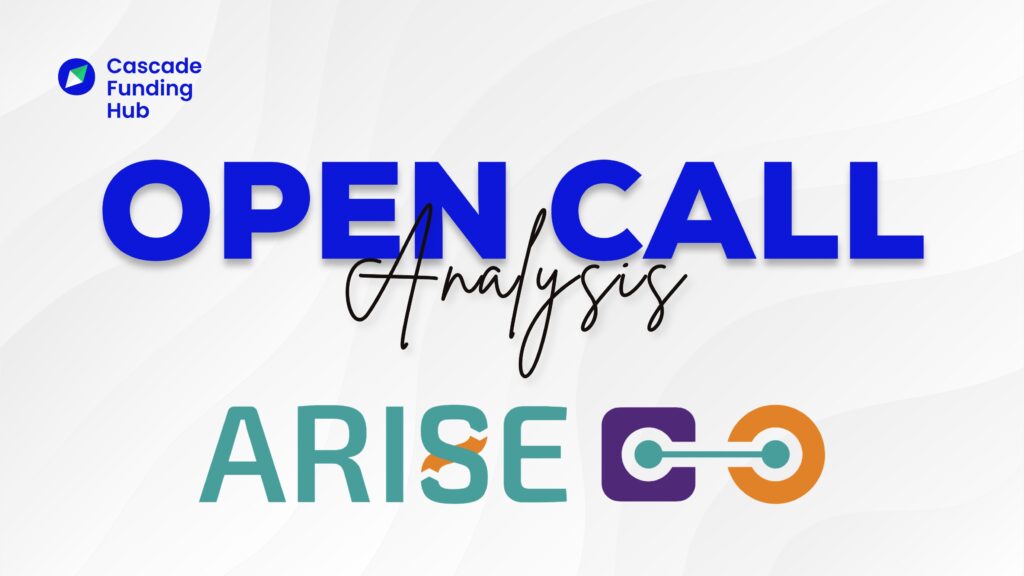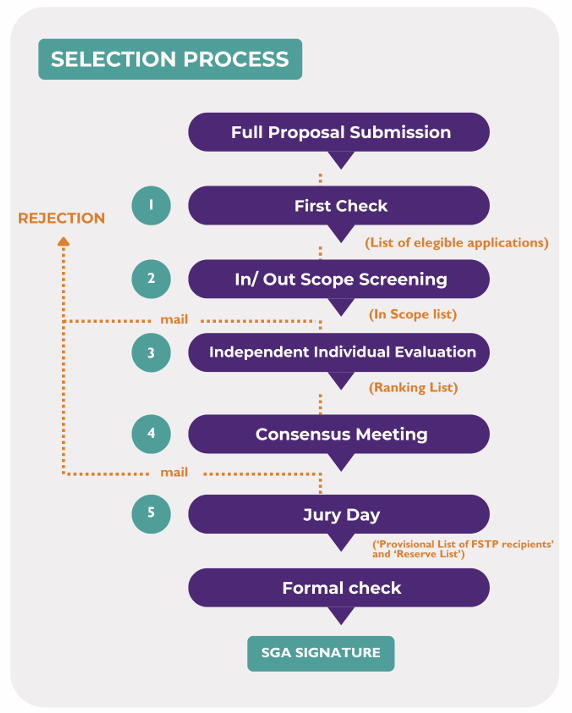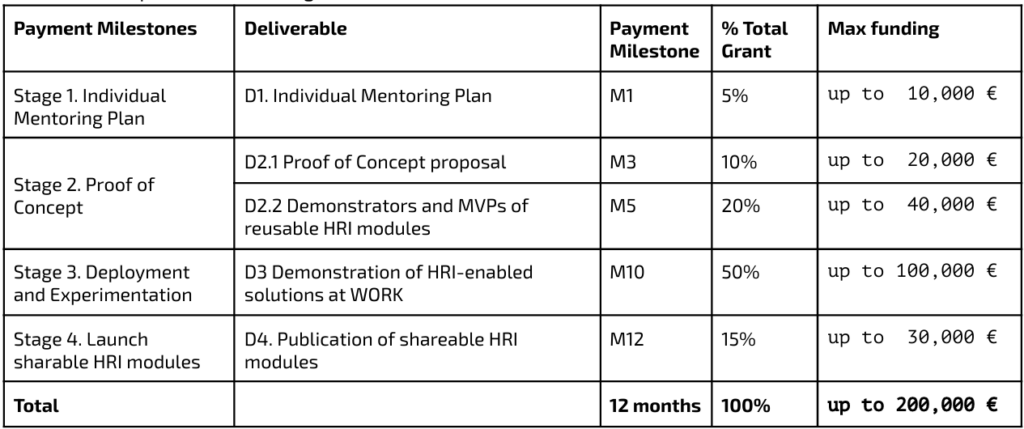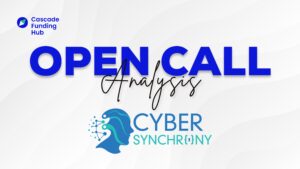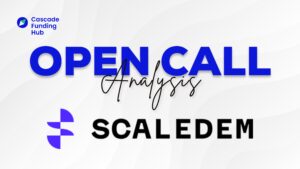The 1st Open Call of the ARISE Programme closes on January 16, 2025. This 12-month initiative empowers real-world testing and validation for industrial Human-Robot Interaction (HRI) innovations, offering up to €200,000 per project to advance cutting-edge solutions in robotics automation.
About ARISE
ARISE is a Horizon Europe project focused on making industrial Human-Robot Interaction (HRI) more accessible and cost-effective. Coordinated by Fundación CARTIF, it unites 10 partners from five countries to develop open-source solutions tailored for healthcare, intra-logistics, and manufacturing. In total, two open calls will be launched with a EUR 5,200,000 budget to be distributed among 26 selected winners (13 per call).
The project emphasises human-centric design and real-time capabilities, ensuring robots integrate seamlessly into workflows while enhancing efficiency.
ARISE focuses on four key outcomes to transform industrial processes:
- Agility: Ensuring production systems adapt quickly to changes while maintaining efficiency and quality.
- Human-Centricity: Prioritising user needs and experiences in designing technologies.
- Community: Fostering collaboration to enhance technological solutions and efficiency.
- Continuous Performance: Seamlessly integrating new technologies for smooth and sustainable operations.
Why Apply to ARISE Open Call 1?
The ARISE project will select up to 13 projects to receive exceptional support. Each project must consist of one SME, Mid-cap, or Start-up as a technology provider developing an HRI-enabling solution, and an end-user proposing a use-case scenario.
Selected projects will benefit from:
- Funding: Receive up to €200,000 per project to support your development.
- Expert Guidance: Participate in a 12-month Support and Mentoring Program, with tailored assistance to drive success.
- Collaboration Opportunities: Work alongside leading experts in HRI to refine and implement your solutions.
- Innovation Focus: Develop cutting-edge solutions that shape the future of industry.
Who Can Apply?
The ARISE Open Call is open to teams of up to two entities with at least one being an SME (this SME must lead the team). A single entity can also apply if it fulfils both roles (Technology Provider and End-User).
Eligible Applicants:
- Technology Providers:
- SMEs (including startups) or Mid-Caps focused on developing HRI-enabled industrial robotics solutions. They must design, develop, and implement a collaborative robotics application. The activities are expected to start at TRL 3-5, reaching TRL 6-7 by the project’s end.
- End-Users:
- Entities owning industrial facilities with existing processes and identified workflow improvement needs.
- Their focus should be on enhancing workflows using human-centric collaborative robotics solutions.
- Manual workers and shop floor managers will play crucial roles in the proposed use cases.
Additional Criteria:
- Applicants must be legally registered in EU Member States, Horizon Europe-associated countries, or their Overseas Territories.
- ARISE consortium members, affiliates, and employees cannot apply.
- Entities under EU restrictive measures are not eligible.
Teams can be formed through a matchmaking process using ARISE-validated lists of Technology Providers and End-Users or created independently. Both options are equally eligible.
*The list of the validated technology providers and end-users can be found in Annex 1 and Annex 2 of the guide for applicants
What activities can be funded?
To be eligible for financial support under the ARISE project, proposed activities must align with the project’s scope. This includes extending existing HRI tools to fit new use cases or developing new HRI modules for processes where such interaction hasn’t been implemented yet. Projects should address only one of the following ARISE challenges:
- CH1: Dismantling and assembly of high-value products
- CH2: Complex product picking in industrial warehouses
- CH3: Flexible collaborative robots
- CH4: Smart programming
- CH5: Enhanced robot functionality through multimodal HRI interactions
- CH6: Fetch and carry tasks in healthcare settings
- CH7: HRI solutions to boost worker efficiency in high-precision, flexible tasks
- CH8: HRI systems to improve ergonomics in high-precision tasks
More information regarding the ARISE challenges can be found in the “Technical Guidelines”
How to Apply?
Submit the proposal including the application form, the work plan-GANTT and the budget before the deadline through the F6S system.
Important Dates
- Submission Deadline: 16th of January at 17:00 CET
Evaluation Process
The ARISE evaluation process is divided into 5 steps:
- After the 1st ARISE Open Call closes, proposals will be reviewed for eligibility based on the Declaration of Honour or self-declarations in the application. Proposals that do not meet the criteria will be rejected, and a ‘List of Eligible Applications’ will be published.
- If there are many applications, an In/Out Scope Screening will be applied to ensure the proposal fits within the ARISE project scope and addresses one of the specified challenges. Proposals that fail to meet these requirements will be excluded.
- Eligible proposals will be evaluated by 2 independent experts. Proposals will be evaluated following awarding criteria: Excellence, Impact and Implementation (More information regarding specific aspects of the evaluation can be found in the guide for applicants). Proposals meeting or exceeding the threshold will advance to the next stage.
- After the external evaluation, a consensus meeting will be held. The selection committee, supported by 3 external experts, will review the expert evaluation ranking list and select the proposals for Jury Day by consensus (minimum 2/3 majority). While the highest-ranked proposals are typically chosen, the committee may exclude proposals for reasons such as alignment with ARISE goals, potential impact, ethical concerns, or conflicts of interest, in which case the next-ranked proposal may be selected.
Lastly, if the proposal is selected, the applicants will be invited to pitch at an online Jury Day. Following the pitch, the selection committee will conduct a final evaluation based on impact, team vision, and positive influence on your processes, and will create a ‘Provisional List of FSTP recipients’ and a ‘Reserve List.’ The Committee will aim to fund at least one top-ranked proposal per challenge if it meets the scoring thresholds, with the number of approved proposals depending on overall quality.
Payment and Funding
Once selected and the subgrant agreement is signed, the ARISE-12-month support programme will start. The process will begin by creating an individual mentoring plan tailored to each beneficiary. Once validated, this plan becomes part of the subgrant agreement, outlining the project’s budget, deliverables, and KPIs to track progress. The programme is divided into four stages:
- Stage 1 (1 month): Develop and finalise the individual mentoring plan
- Stage 2 (4 months): Create a proof of concept for the proposed solution
- Stage 3 (5 months): Deploy and experiment with the solution in real-world settings
- Stage 4 (2 months): Launch sharable HRI modules developed during the project
Beneficiaries will receive a fixed lump sum of up to EUR 200,000 per consortium paid in the following tranches:
Project performance will be assessed at milestone reviews, where payments are tied to three key criteria: deliverable quality (30%), technical performance (60%), and deadline compliance (10%). Scores are given from 0 to 10, and a weighted final score is calculated. A minimum threshold of 7 points is required to receive payments and continue in the programme. If ethics requirements apply to your project, additional reviewers may be involved.
Final thoughts
ARISE is committed to making industrial Human-Robot Interaction (HRI) more accessible, cost-effective, and adaptable, with a focus on sectors such as healthcare, intralogistics, and manufacturing. Through the development of robust open-source middleware and a human-centric HRI framework, the project aims to empower European industry and foster a sustainable ecosystem for open innovation in industrial robotics.
